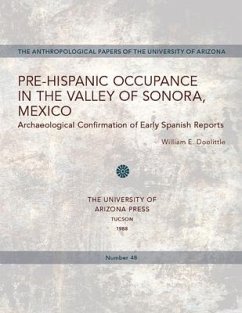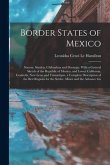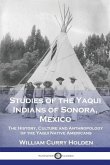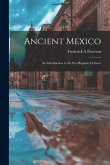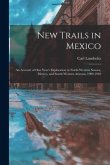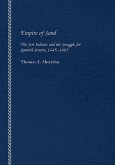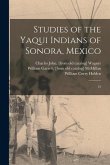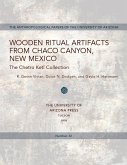"[This book] presents a great amount of new information for a poorly known or understood area of northern Mexico, and provides a pleasant integration of the methods and theories of anthropology, geography, and ecology in a well-organized manner. . . . This report represents an important contribution to our understanding of cultural evolution and environmental adaptation in the Valley of Sonora and lays a strong framework for future studies and discussions."--Journal of Arizona History

